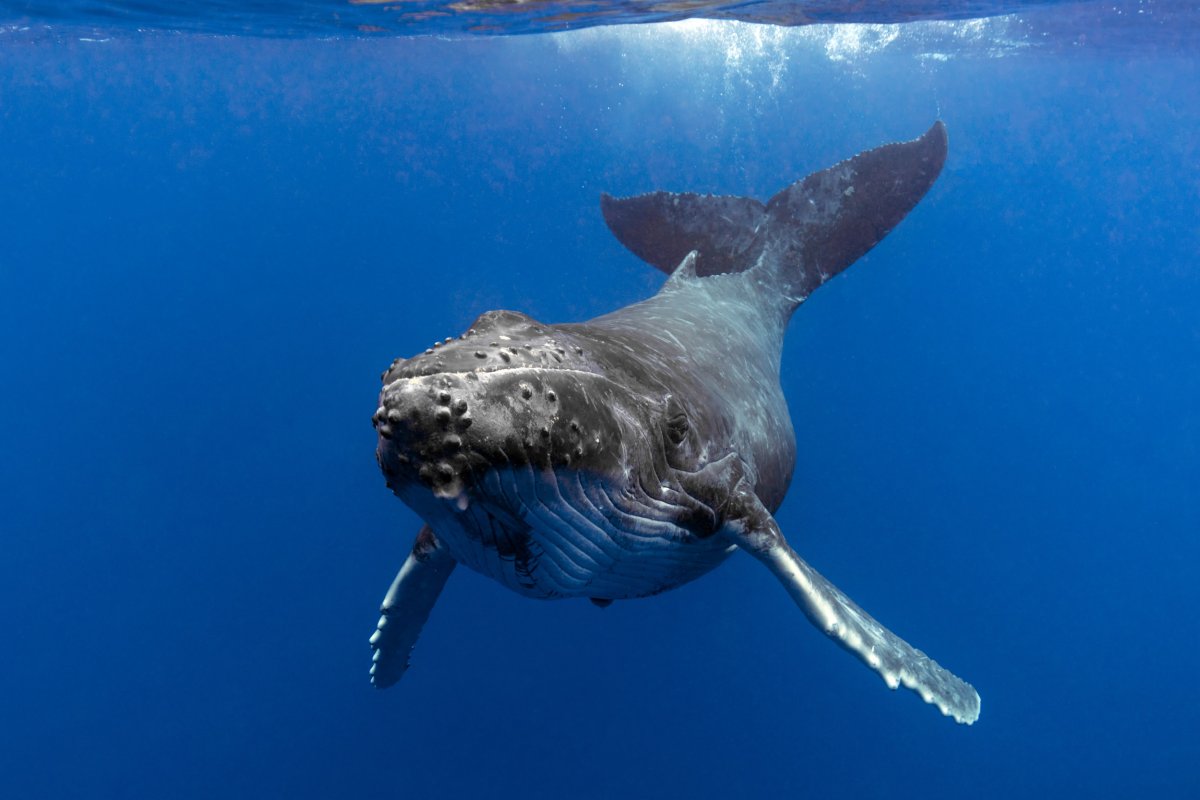Scientists may have just had their first conversation with whales while testing software that could one day help them communicate with aliens.
The team of scientists—from the SETI Institute, the University of California, Davis, and the Alaska Whale Foundation—were studying humpback whale communication off the coast of Alaska when they detected the underwater "greeting signal" from a whale called Twain.
Whales make underwater noises to communicate with each other. Although we do not know what the sounds mean exactly, scientists believe they use them to socialize with each other, as well as to navigate, find food and avoid predators

The scientists played a previously recorded humpback whale contact call through an underwater speaker, which resulted in Twain approaching the boat. He circled the boat for a while before responding. The conversation lasted for 20 minutes, and during this time the whale made noises in response to each record.
The team members had been studying these whales to practice the software and develop intelligence filters that may one day be used to communicate with extraterrestrials. The SETI Institute has a strong focus on the search for extraterrestrial life. The team is focusing on developing the filter to decipher the meaning behind any signals received. Similarly, scientists have studied Antarctica as a way to better understand Mars.
The scientists believe this is the first exchange between humans and humpback whales, in the "humpback language," lead author Brenda McCowan of U.C. Davis said in a press release detailing the findings.
"Humpback whales are extremely intelligent, have complex social systems, make tools—nets out of bubbles to catch fish—and communicate extensively with both songs and social calls," said study co-author Fred Sharpe of the Alaska Whale Foundation.
Their findings following the conversation were published in the journal Peer J.
Laurance Doyle of the SETI Institute, a co-author of the paper, said in a press release: "Because of current limitations on technology, an important assumption of the search for extraterrestrial intelligence is that extraterrestrials will be interested in making contact and so target human receivers. This important assumption is certainly supported by the behavior of humpback whales."
The team of researchers, which also included such experts as Josie Hubbard, Lisa Walker, and Jodi Frediani, is looking to publish a second paper shortly.
This paper will focus on the non-audio communicative behavior of humpback whales, the press release said. This includes indicators such as bubble rings, which the whales appear to make when near humans.
Do you have a tip on a science story that Newsweek should be covering? Do you have a question about humpback whales? Let us know via science@newsweek.com.
Uncommon Knowledge
Newsweek is committed to challenging conventional wisdom and finding connections in the search for common ground.
Newsweek is committed to challenging conventional wisdom and finding connections in the search for common ground.
About the writer
Robyn White is a Newsweek Nature Reporter based in London, UK. Her focus is reporting on wildlife, science and the ... Read more
To read how Newsweek uses AI as a newsroom tool, Click here.






